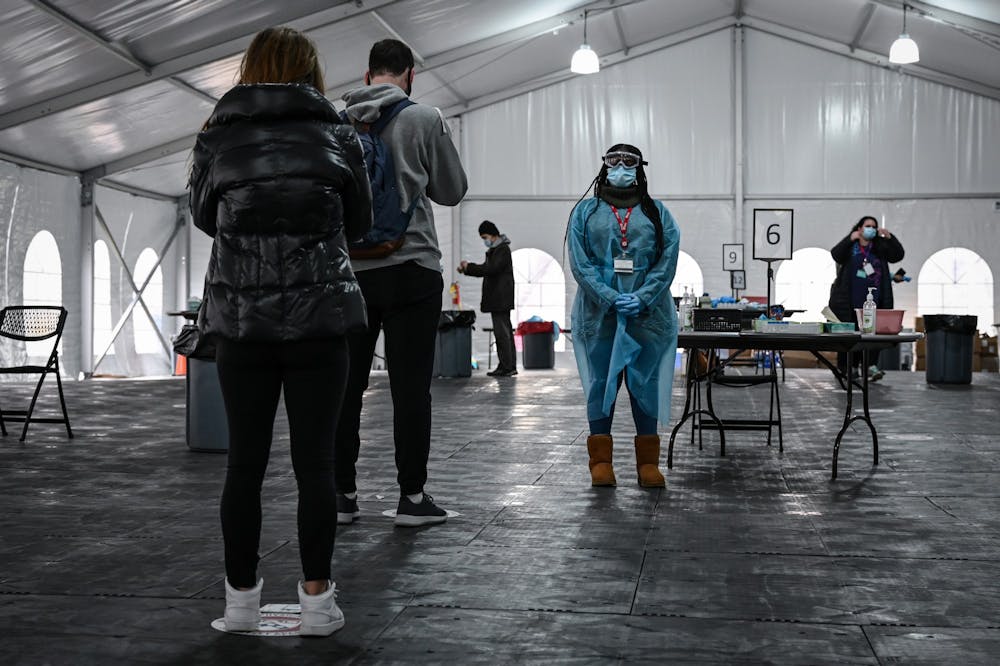Penn’s weekly COVID-19 cases and positivity rate decreased, while the total number of students in isolation sharply declined.
A total of 467 community members tested positive for COVID-19 during the week from Jan. 16 to Jan. 22 — down from 821 the week before — continuing a three-week declining trend in positive cases.
The COVID-19 positivity rate also subsided for a fourth consecutive week, reaching a five-week low of 4.11% among all community members during the week from Jan. 16 to Jan. 22, far lower than the record-high positivity rate of 19.14% from Dec. 26 to Jan. 1 a few weeks ago.
“We have reason to believe that things will continue as we hope they will,” Chief Wellness Officer Benoit Dubé told The Daily Pennsylvanian, though he added that community members should remain thoughtful and not become “overly excited and potentially complacent” as a result of recent campus trends.
The number of students in isolation also plummeted, dropping from last week’s record high of 1,315 to 564. With fewer students in isolation, on-campus isolation housing capacity nearly tripled, reaching 77.2% availability — up from 23.3% during the prior week.
Director of Campus Health Ashlee Halbritter said the University has been responsive to complaints from students living in on-campus isolation housing. Recent changes to the isolation housing experience include termination of the usage of old fraternity and sorority houses, changes in how students in isolation can safely order and receive food, and ensuring students receive moving instructions to the isolation dorms.
In response to a consistently decreasing positivity rate and case count, Penn updated its event guidelines on Jan. 25, allowing students to once again gather indoors in order to attend class, study, and hold meetings and events.
Dubé clarified that the decision about lifting the restriction on public gatherings and event registration will be made after the University collects the final data from the gateway testing policy, which can be expected by Feb. 1.
RELATED:
Number of students in Penn's COVID-19 isolation housing surges, despite declining case count
Students are relieved to have returned to in-person classes — but COVID-19-related concerns persist
“The concept of collective responsibility is a really, really important tenet in all of our public health decisions,” said Dubé.
More community members also took COVID-19 tests in the past week — with a five-week high of 11,371 — as part of the University’s spring semester gateway testing policy, which requires all students, faculty, staff, and postdoctoral students to receive a COVID-19 test through Penn upon campus arrival. Community members have until the end of January to receive a gateway test.
Halbritter said the University has an obligation to make decisions that help protect the University City and West Philadelphia neighborhoods by looking at data points outside of the Penn community.
“I think that’s an important piece that is sometimes hard to remember when you’re a college student just wanting to have a college experience,” Halbritter said.









